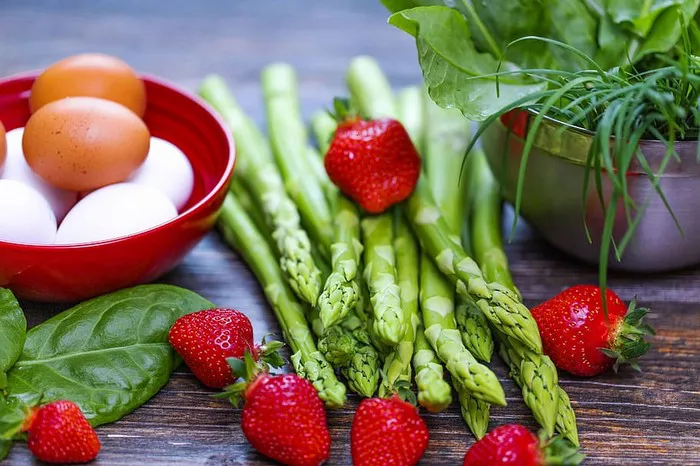In a world where dietary choices are as diverse as the cultures that shape them, the vegetarian diet has emerged as a popular and viable option for many seeking a healthier lifestyle, ethical eating, or environmental sustainability. But what exactly constitutes a healthy vegetarian diet? It’s not simply about excluding meat; rather, it’s a complex interplay of carefully selecting a wide variety of plant-based foods to ensure that the body receives all the essential nutrients it needs. This comprehensive essay will explore the multifaceted aspects of a healthy vegetarian diet, from understanding the different types of vegetarianism, to the key food groups that form its foundation, how to meet nutritional requirements, its potential health benefits, tips for meal planning and preparation, and how it can be adapted to suit different life stages and individual preferences.
Types of Vegetarian Diets
Definition and Basics: Lacto-ovo vegetarians exclude all meat, including poultry, fish, and seafood, but include dairy products and eggs in their diet. This is one of the most common forms of vegetarianism and offers a relatively wide range of food options. The inclusion of dairy provides a source of calcium, protein, and other essential nutrients, while eggs are a complete protein source and can be used in numerous recipes, from omelets to baked goods.
Food Examples: A lacto-ovo vegetarian might start their day with a bowl of oatmeal with milk and a side of scrambled eggs. For lunch, a sandwich made with cheese, lettuce, tomato, and egg salad on whole wheat bread could be a satisfying option. Dinner could feature a pasta dish with lots of vegetables, a creamy cheese sauce, and perhaps a side salad with a dressing containing egg-based mayonnaise.
Lacto Vegetarianism
Definition and Basics: Lacto vegetarians refrain from consuming meat, poultry, fish, seafood, and eggs but do include dairy products. This diet is often chosen for ethical or health reasons related to egg consumption. Dairy becomes an even more crucial component in meeting certain nutritional needs, especially for protein and calcium.
Food Examples: A typical breakfast for a lacto vegetarian could be a bowl of yogurt with berries and granola. Lunch might consist of a grilled cheese sandwich on whole wheat bread with a cup of tomato soup. For dinner, a vegetable lasagna made with ricotta and mozzarella cheese, along with layers of spinach, zucchini, and tomatoes, would be a delicious and filling choice.
Ovo Vegetarianism
Definition and Basics: Ovo vegetarians avoid all forms of meat, dairy products, and seafood but do consume eggs. Eggs play a central role in providing protein and other nutrients in this diet. They can be prepared in various ways and incorporated into different meals throughout the day.
Food Examples: An ovo vegetarian could have a breakfast of a protein-packed smoothie with added egg whites. For lunch, a salad with hard-boiled eggs, avocado, and lots of fresh vegetables, dressed with a vinaigrette, would be a great option. Dinner might involve an egg-based frittata with a medley of sautéed vegetables like mushrooms, onions, and bell peppers, served with a side of whole wheat toast.
Veganism
Definition and Basics: Vegans follow the strictest form of vegetarianism, excluding all animal products, which means no meat, poultry, fish, seafood, dairy, eggs, or any other animal-derived ingredients such as honey or gelatin. This diet relies entirely on plant-based foods to meet nutritional requirements, which can be both challenging and rewarding as it encourages a diverse exploration of plant sources.
Food Examples: A vegan’s breakfast could be a bowl of plant-based cereal with almond milk and a handful of nuts and berries. Lunch might be a hearty sandwich on vegan bread with hummus, avocado, cucumber, and sprouts. For dinner, a vegan pasta dish with lentil-based bolognese sauce, lots of spinach and tomatoes, and a side of roasted vegetables would showcase the creativity and variety possible within a vegan diet.
Conclusion
In conclusion, a healthy vegetarian diet is a well-balanced, nutrient-rich eating plan that can provide numerous health benefits, from reducing the risk of chronic diseases to promoting overall well-being. By incorporating a variety of vegetables, fruits, whole grains, legumes, nuts, seeds, and plant-based proteins, vegetarians can meet their nutritional needs while enjoying a wide array of flavors and textures. It’s crucial to pay attention to key nutrients such as protein, iron, calcium, vitamin B12, omega-3 fatty acids, and vitamin D, often found in fortified foods or supplements. Planning meals thoughtfully and occasionally consulting with a healthcare provider or a registered dietitian can help ensure that a vegetarian diet remains comprehensive and satisfying. Ultimately, a healthy vegetarian diet is not just about what one excludes but, more importantly, about the inclusion of a diverse range of plant-based foods that support long-term health and vitality.
Related Topics:






















